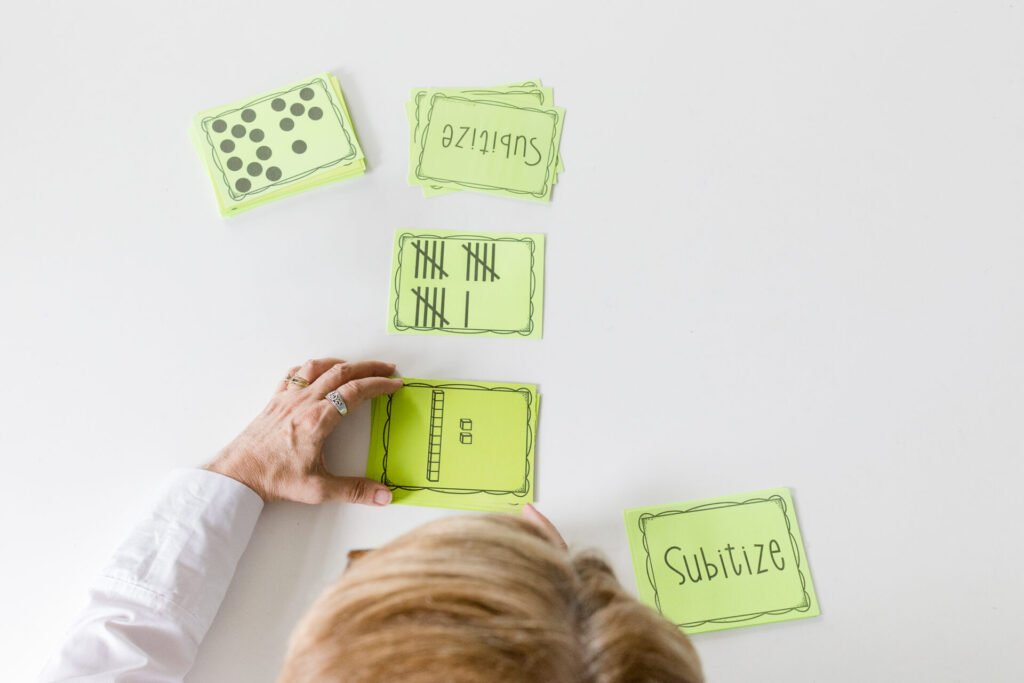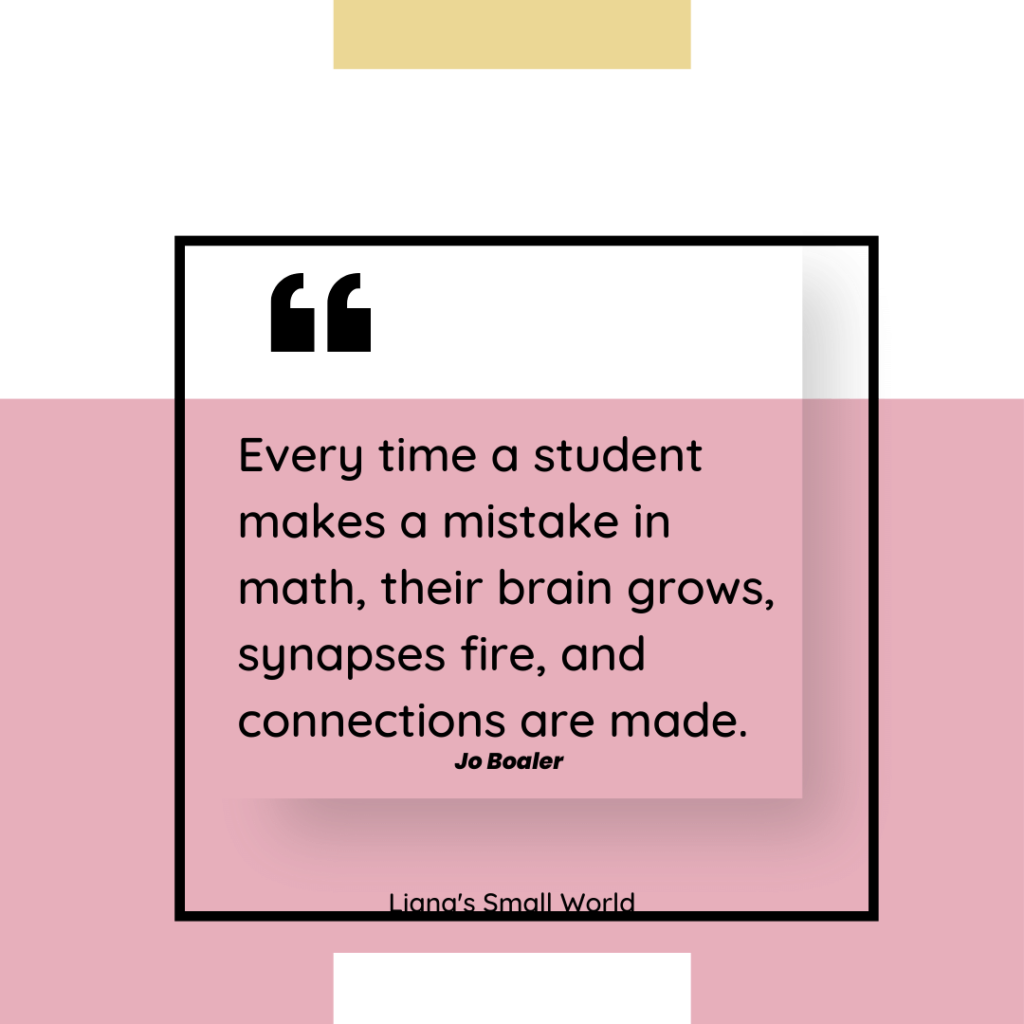1. Emphasize Number Sense.
To help your students with math anxiety, first, make sure your students have a keen sense of the value of numbers and can gauge whether their approach to a math problem makes sense.
In the past, math has been taught algorithmically, which means “Do this first, then this, then this, and you will get the right answer.” Kids who are very sequential might do well with this, but most, if not ALL kids, will have no idea WHY that algorithm makes sense. This can leave them with a tremendous amount of insecurity and math anxiety.
Alternatively, students who have a degree of number sense, feel a sense of control over what they do in math, AND if they get stuck, will often have another idea of how to try again.
For more information on number sense please see my 2 prior blog posts on this subject:
3 Routines Guaranteed to Develop Number Sense in Your Students
3 More Ways to Develop Number Sense in Your Students
2. Value depth over speed.

This is one of the positive norms Jo Boaler sets up for a math class in her book “Mathematical Mindsets” We generally think of timed tests when it comes to math facts. But more important than students MEMORIZING times tables, they should understand the patterns that lead to the times tables. This is why younger grades should be emphasizing subitizing, (Seeing numbers in a pattern of objects such as immediately knowing the 9 on the domino without counting the dots because we see three groups of three)
I DO, however, emphasize efficiency in math. For instance, some students count the dots on this domino, but we can encourage them to see if there is another way we might know that is nine which is faster? Counting the dots may be necessary for students who are on a concrete level, but our job is to gently MOVE them along to more efficient strategies. AND when the anxiety is no longer present, they are more willing to try other more efficient strategies.
Do I hope that my students KNOW their times tables well? YES. But rather than emphasizing timed tests, I give them time to play games with the facts.
Play MULTIPLICATION WAR

The card with the highest sum or product takes the two cards!
3. Help Kids Reframe Negative Self Talk

Math anxiety can begin when a child has a history of not being successful in math and develops negative talk. This is particularly dangerous when the thoughts of “I didn’t get the right answer to this problem”, get generalized into “I can’t do math!”
According to James Clear in his book “Atomic Habits”, when we associate our IDENTITY with this type of mindset, it becomes very difficult to change behavior. Because “If that is who I AM, I am UNABLE to do it, then it is futile to try.”
One thing I like to emphasize to my students is that Mathematicians notice patterns in math. We kind of make it a game to look for patterns in the new kinds of things we are learning in math. When someone finds one, I usually say something like “Look who is becoming a mathematician!!” This is the identity; we want kids to be comfortable with. Using James Clear’s idea, this student will then be much more eager to try next time.
We need to help kids change negative self-talk from instead of “I can’t do this!” to “I need to find another way to try!” And PRAISE positive self-talk! I have been known to pass out classroom currency when I see a struggling student persevere through a challenge, especially if I hear positive self-talk! Kids catch on pretty quickly!

4. Value MISTAKES – and promote a healthy mistake-making culture in your classroom!
This is something that you should model. How do you respond to your OWN mistakes in the classroom? Also, you can teach kids how fun it can be to find the “WHY” of mistakes. You may have heard of the exercise called, “My Favorite No” This is when you find an anonymous example of someone who did a lot of GOOD work and good thinking, yet got the wrong answer. Have students figure out the parts that are good and where they went wrong. This is SUCH a valuable exercise for preventing mistakes in the future AND more importantly for VALUING the mistakes.
5. Make Math FUN!

Light-heartedness, games, laughter, and collaboration go a LONG way to making math fun! When kids who have experienced math anxiety are in a classroom with this atmosphere, it is hard for anxiety to co-exist within that room. Look for math games to teach concepts you are working on, and make fun – part of the math routine in your room!
I am the first to admit, I have made a million mistakes emphasizing the wrong thing in the past, but I have been trying to implement these ideas in my math classroom over the past few years, and this is what I’m noticing, when kids start to overcome their anxiety related to math, their scores SOAR! I have seen this time and time again.
I was recently in an IEP meeting for a student, who made an incredible year and a half of growth in math. The mom said that she asked her son, why are you doing so much better in math now? His answer was, “I like the way my teacher teaches math.” I can’t say for sure what he meant by that, but my assumption from knowing his history is that it had to do with the ideas presented here.
Do you observe math anxiety in your classroom? What will you, or have you tried to help these students?
Follow Me and Learn More:







0 Comments